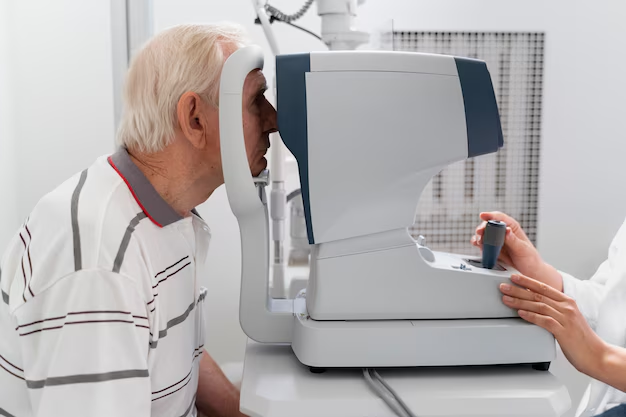Your Guide to Does Medicare Cover Lasik Surgery
What You Get:
Free Guide
Free, helpful information about Medicare Insurance and related Does Medicare Cover Lasik Surgery topics.
Helpful Information
Get clear and easy-to-understand details about Does Medicare Cover Lasik Surgery topics and resources.
Personalized Offers
Answer a few optional questions to receive offers or information related to Medicare Insurance. The survey is optional and not required to access your free guide.
Does Medicare Pay for Lasik Surgery? Here’s What You Need to Know
Navigating the world of healthcare coverage can be daunting, especially when it comes to understanding if certain procedures like Lasik surgery are covered by Medicare. Lasik, or Laser-Assisted In Situ Keratomileusis, is a popular elective laser eye surgery designed to correct vision issues such as myopia, hyperopia, and astigmatism. However, whether Medicare will cover this procedure is a common question among those considering enhancing their vision.
Medicare and Lasik Surgery: Understanding the Coverage
Unfortunately, Medicare does not cover Lasik surgery. The reason? Medicare typically does not cover elective procedures, and Lasik is primarily considered a non-essential, elective procedure. Medicare generally focuses on covering medical expenses for necessary health treatments and surgeries, particularly those that are deemed medically necessary to improve or save a patient's life.
Although Lasik tremendously enhances quality of life by reducing dependence on glasses or contact lenses, it falls outside the scope of what Medicare traditionally deems "medically necessary."
Alternative Options for Lasik Surgery Financial Relief
While traditional Medicare won't foot the bill for Lasik, there are other avenues worth exploring:
Flexible Spending Accounts (FSAs) and Health Savings Accounts (HSAs): These accounts allow pre-tax dollars to be set aside for medical expenses, potentially offering savings on Lasik.
Vision Insurance Plans: Some private vision insurance plans offer partial coverage or discounts for Lasik. It’s wise to check with providers to see if such options exist.
Financing Through Providers: Many Lasik centers offer payment plans or financing options to make the procedure more affordable. These might include interest-free payment periods or low monthly payment options.
Exploring Other Government Aid and Financial Assistance Programs
If concerns about cost extend beyond Lasik, exploring other financial and government assistance might be beneficial. Here are some alternatives that can help manage healthcare-related expenses or provide relief in other vital areas of life:
Medicaid: Depending on the state, Medicaid may offer broader coverage options and might cover other types of eye surgery if deemed medically necessary.
Supplemental Security Income (SSI): For eligible individuals, particularly those with limited income or resources, SSI can provide crucial financial support.
Community Health Programs: Many communities offer free or inexpensive clinics that provide comprehensive eye exams and basic care.
Nonprofit Organizations: There are various nonprofit organizations dedicated to helping individuals with eye care, including surgeries, whose services might reduce or eliminate costs.
Beyond Healthcare: Financial and Educational Aid
Moreover, those concerned about financial burdens might find it useful to explore broader financial assistance solutions:
🔹 Debt Relief Programs: These aid in consolidating or reducing debt, which can free up funds for essential health expenses.
🔹 Educational Grants and Scholarships: Investing in education can open doors to better job opportunities, helping improve financial stability.
🔹 Government Subsidies: Various initiatives provide support for housing, utilities, and more, amplifying financial flexibility.
🔹 Credit Counseling Services: Professional advice on managing credit and finding the best credit card solutions tailored to individual needs.
Navigating Medicare limitations regarding Lasik surgery invites exploring alternative options not just for vision correction but for broader financial well-being. Being informed and proactive is the best approach to securing the most advantageous and cost-effective solutions.
What You Get:
Free Medicare Insurance Guide
Free, helpful information about Does Medicare Cover Lasik Surgery and related resources.

Helpful Information
Get clear, easy-to-understand details about Does Medicare Cover Lasik Surgery topics.

Optional Personalized Offers
Answer a few optional questions to see offers or information related to Medicare Insurance. Participation is not required to get your free guide.


Discover More
- Am I Elgible For Medicare
- Am I Enrolled In Medicare
- Am I Qualified For Medicare
- Are Adult Diapers Covered By Medicare
- Are Chemotherapy Drugs Covered By Medicare Part d
- Are Colonoscopies Covered By Medicare
- Are Covid Tests Covered By Medicare
- Are Cpap Machines Covered By Medicare
- Are Cpap Supplies Covered By Medicare
- Are Dental Implants Covered By Medicare
